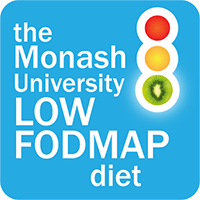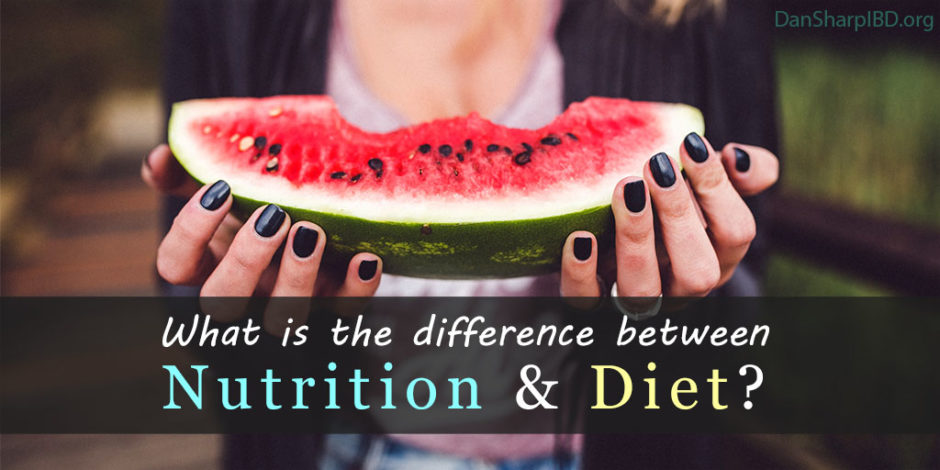
 Nutrition refers to “the act or process of nourishing or being nourished”. 1http://www.merriam-webster.com/dictionary/nutrition To be nourished, to have good nutrition, means getting appropriate amounts of nutrients (i.e. protein, fat, carbohydrates, vitamins, minerals, and water). 2http://mynutrition.wsu.edu/nutrition-basics/ 3https://www.merckmanuals.com/professional/nutritional-disorders/nutrition-general-considerations/overview-of-nutrition
Nutrition refers to “the act or process of nourishing or being nourished”. 1http://www.merriam-webster.com/dictionary/nutrition To be nourished, to have good nutrition, means getting appropriate amounts of nutrients (i.e. protein, fat, carbohydrates, vitamins, minerals, and water). 2http://mynutrition.wsu.edu/nutrition-basics/ 3https://www.merckmanuals.com/professional/nutritional-disorders/nutrition-general-considerations/overview-of-nutrition
Diet refers to the food and drinks one regularly consumes. 4http://www.merriam-webster.com/dictionary/diet
As I’ve heard one IBD physician explain it, nutrition is what we need, and diet is how we choose to get it. 5Dr. David Rubin – Paraphrased from talk at University of Chicago IBD Education event, October 2014
Regardless of any specific dietary choices a patient makes, it’s extremely important that they receive adequate nutrition. 6http://www.ncbi.nlm.nih.gov/pmc/articles/PMC2678578/ 7https://www.ncbi.nlm.nih.gov/pmc/articles/PMC5517270/ According to a 2012 article from the Frontline Gastroenterology medical journal on nutritional management in IBD, proper nutrition “allows adequate metabolic, immunological and physiological function to maintain health, including wound and mucosal healing, appropriate response to secondary infection, pregnancy and growth.” 8https://www.ncbi.nlm.nih.gov/pmc/articles/PMC5517270/ Simply put, good nutrition is a key part of maintaining and improving all aspects of a patient’s health, including recovery from active disease, surgery, and infection.
The Importance of Nutrition in IBD
Poor nutritional status in IBD has been associated with multiple complications and issues, such as:
- Loss of bone mass, leading to osteopenia, osteoporosis, and increased risk of fractures. 9https://med.virginia.edu/ginutrition/wp-content/uploads/sites/199/2014/06/Naik-PG-June-2012.pdf 10http://www.medscape.com/viewarticle/764757_3
- Increased risk of infection. 11http://www.ncbi.nlm.nih.gov/pmc/articles/PMC2678578/ 12http://www.sciencedirect.com/science/article/pii/S1873994609000166
- Anemia. 13https://med.virginia.edu/ginutrition/wp-content/uploads/sites/199/2014/06/Naik-PG-June-2012.pdf 14https://med.virginia.edu/ginutrition/wp-content/uploads/sites/199/2015/11/eidenarticle-May-03.pdf
- Blood-clotting disorders. 15http://www.medscape.com/viewarticle/764757_3 16http://www.ncbi.nlm.nih.gov/pubmed/16126956/ 17http://www.ncbi.nlm.nih.gov/pmc/articles/PMC3886032/
- Slow wound and mucosal healing. 18http://www.ncbi.nlm.nih.gov/pmc/articles/PMC2678578/ 19http://www.medscape.com/viewarticle/764757_3
- Psychological issues, such as anxiety and depression. 20http://www.ncbi.nlm.nih.gov/pubmed/9361174 21http://www.nature.com/nrgastro/journal/v12/n3/full/nrgastro.2015.11.html
- A number of serious issues in pediatric patients, including growth delays, failure to reach target height, and pubertal delays. Crohn’s patients are at particular risk. 22http://www.ncbi.nlm.nih.gov/pmc/articles/PMC3005189/ 23https://med.virginia.edu/ginutrition/wp-content/uploads/sites/199/2014/06/Gurram-April-2012.pdf 24http://www.ncbi.nlm.nih.gov/pmc/articles/PMC3491592/ 25http://www.ncbi.nlm.nih.gov/pmc/articles/PMC2590584/ 26http://www.nature.com/pr/journal/v53/n2/full/pr2003210a.html 27https://www.karger.com/Article/Pdf/226311
- A worsening of post-surgical outcomes. 28http://www.medscape.com/viewarticle/764757_3
“Perioperative nutritional support is a particular concern in patients with IBD as operating on patients in a malnourished state is known to be associated with poorer outcomes and therefore the use of nutritional support to attempt preoperative optimisation of nutritional status is advocated.” 29http://www.medscape.com/viewarticle/764757_3
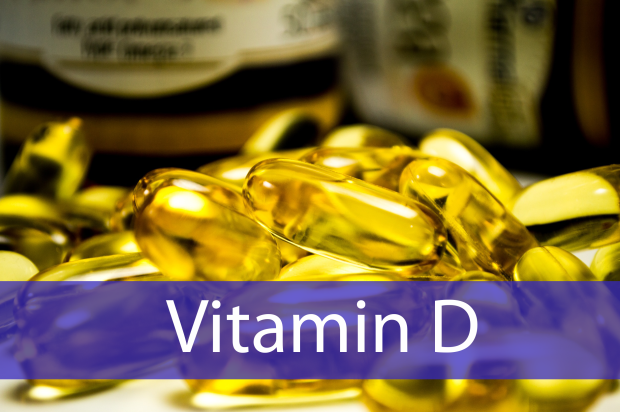 Good nutritional status in IBD is associated with improved quality of life for patients. If good nutrition can help patients avoid the complications mentioned above, then it should be obvious that it’s important. For a little extra illustration of good nutrition in IBD, consider Vitamin D.
Good nutritional status in IBD is associated with improved quality of life for patients. If good nutrition can help patients avoid the complications mentioned above, then it should be obvious that it’s important. For a little extra illustration of good nutrition in IBD, consider Vitamin D.
There is a lot of research being done on Vitamin D and how it relates to IBD. Adequate Vitamin D levels have been associated with lower levels of CRP (a marker of inflammation in the blood), higher quality of life in patients, fewer IBD-related symptoms reported by patients, 30http://www.medscape.com/viewarticle/846818?src=rss 31http://www.medscape.com/viewarticle/818324 fewer hospitalizations, and a reduced risk for surgery. 32http://www.ncbi.nlm.nih.gov/pmc/articles/PMC3720838/ 33http://www.ncbi.nlm.nih.gov/pubmed/26952579
Nutritional Deficiencies and IBD
Unfortunately, IBD is associated with various nutritional deficiencies. Major reasons for nutritional deficiencies in IBD patients include:
- Restrictive diets & inadequate food intake
- Active disease (e.g. inflammation leads to higher energy expenditure, damaged mucosa leads to protein loss and blood loss, inflammatory cytokines can lead to increased catabolism, pain leads to food restriction or fear of eating, etc)
- Poor absorption of nutrients, primarily in the case of more extensive intestinal involvement, certain past surgical interventions, or due to medication side effects. 34https://med.virginia.edu/ginutrition/wp-content/uploads/sites/199/2015/11/eidenarticle-May-03.pdf 35http://www.ncbi.nlm.nih.gov/pmc/articles/PMC2678578/ 36https://www.ucsfhealth.org/education/nutrition_tips_for_inflammatory_bowel_disease/
Crohn’s disease patients are particularly at risk, having more wide-ranging deficiencies, and more chronic deficiencies, partly due to the possibility of small bowel involvement (where the majority of nutrient absorption occurs ). 37http://www.ncbi.nlm.nih.gov/pmc/articles/PMC2691486/ 38http://www.ncbi.nlm.nih.gov/pmc/articles/PMC2678578/#__sec3title 39http://www.uptodate.com/contents/nutrition-and-dietary-interventions-in-adults-with-inflammatory-bowel-disease 40https://med.virginia.edu/ginutrition/wp-content/uploads/sites/199/2014/06/Gurram-April-2012.pdf 41http://www.chp.edu/CHP/organs+intestine 42http://web.ics.purdue.edu/~smills/ANSC230/Digestive%20Physiology/Absorption.html 43https://med.virginia.edu/ginutrition/wp-content/uploads/sites/199/2015/11/eidenarticle-May-03.pdf
The Issue With Many Diet Plans
Some IBD patients can not tolerate certain foods, some patients experience symptoms no matter what they eat, and some patients can eat anything without issue. So, how each patient gets their nutrition will vary. And even that can change at times, depending on disease activity, the possibility of irritable bowel syndrome (IBS), small intestinal bacterial overgrowth (SIBO), and other factors.
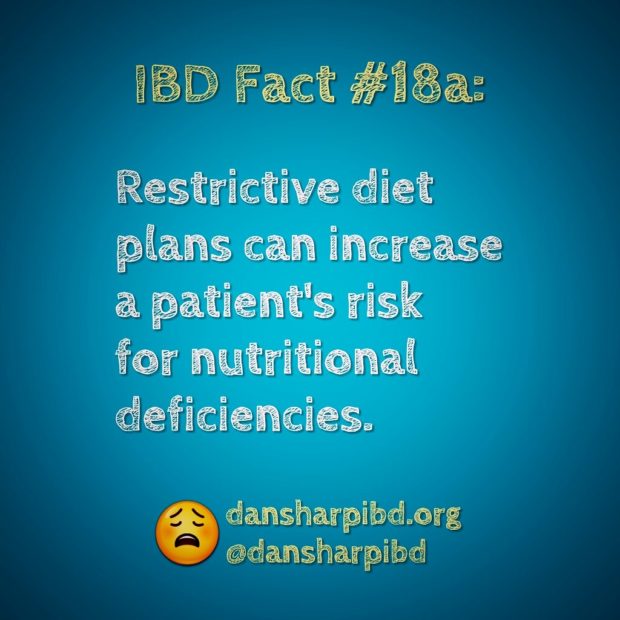 Major issues can arise with diet plans that put unfounded fear into patients about specific foods or categories of foods. A diet plan’s restricted foods may be the ones a patient feels they can tolerate when they are struggling to get adequate nutrition. And the diet recommendations given by many diet plans may not be based on sound evidence or science, leading to nutritional issues and subsequent complications. Unfortunately, if you look around online, there is no shortage of questionable or downright harmful dietary advice being given to IBD patients.
Major issues can arise with diet plans that put unfounded fear into patients about specific foods or categories of foods. A diet plan’s restricted foods may be the ones a patient feels they can tolerate when they are struggling to get adequate nutrition. And the diet recommendations given by many diet plans may not be based on sound evidence or science, leading to nutritional issues and subsequent complications. Unfortunately, if you look around online, there is no shortage of questionable or downright harmful dietary advice being given to IBD patients.
For instance, various “alkaline” or “alkalizing” diets are often marketed to IBD patients, despite being based on pseudoscience and misconceptions. I wrote more about those diets in my post, “The Alkaline Diet: A Brief Overview”.
A 2014 article, “Diet and Inflammatory Bowel Disease”, from the journal Clinical Gastroenterology and Hepatology, included an analysis of patient-targeted dietary advice. It describes some of the potential risk patients take in following unqualified dietary advice found on the internet:
“Our Web search analysis demonstrated that patient-targeted dietary recommendations are highly restrictive and frequently conflicting. These recommendations may result in patient confusion and unnecessarily restrictive diets in patients who are already at risk for nutritional deficiencies.”
“At a practical level, adherence to defined diets may result in an unnecessary financial burden or reduction in overall caloric intake in patients who are already at risk for protein–calorie malnutrition.”
“Both the SCD and Paleo diets have the potential to contribute to vitamin D deficiency. This is a particular concern given the association of vitamin D deficiency and increased risk of surgery and hospitalization.” 44http://www.medscape.com/viewarticle/840847_3
Low-FODMAP Diet
Even the low-FODMAP diet, an evidence-based diet designed for irritable bowel syndrome, which has also been shown to reduce functional symptoms in some IBD patients 45http://www.ncbi.nlm.nih.gov/pubmed/26914438 46http://www.ncbi.nlm.nih.gov/pubmed/21172242, can be problematic if used without expert guidance. A common misconception is that the low-FODMAP diet is a permanent diet; that it’s simply a list of good and bad foods that a patient can refer to indefinitely. 47http://fodmapmonash.blogspot.com/2015/04/low-fodmap-diet-not-lifetime-diet.html The fact is, the low-FODMAP diet is significantly more nuanced than that.
Patsy Catsos, Registered Dietitian and low-FODMAP expert, emphasizes the importance of working with a professional and explains that “the FODMAP elimination diet is a process, not a list of acceptable foods.” 48http://www.aboutibs.org/low-fodmap-diet/five-low-fodmap-diet-pitfalls-and-what-you-can-do-to-avoid-them.html
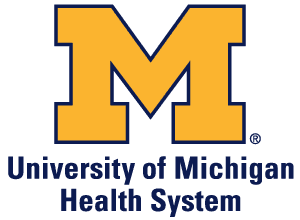 According to the University of Michigan’s Gastroenterology division, the low-FODMAP diet “is a two part diet consisting of elimination and challenge (reintroduction) phases. Patients who try this diet on their own usually find it too restrictive. They may also be choosing the wrong foods and not feel the relief in GI symptoms that would be expected.[…]There are many variables to this diet and to maximize the foods that can be eaten, it is strongly recommended that patients consult with a Registered Dietitian who is familiar with the low FODMAP diet.” They also warn that an IBD patient should not start a low-FODMAP diet while in a flare, which may seem counterintuitive to some patients. 49http://www.med.umich.edu/1libr/Gastro/LowFODMAPDietIntroduction.pdf
According to the University of Michigan’s Gastroenterology division, the low-FODMAP diet “is a two part diet consisting of elimination and challenge (reintroduction) phases. Patients who try this diet on their own usually find it too restrictive. They may also be choosing the wrong foods and not feel the relief in GI symptoms that would be expected.[…]There are many variables to this diet and to maximize the foods that can be eaten, it is strongly recommended that patients consult with a Registered Dietitian who is familiar with the low FODMAP diet.” They also warn that an IBD patient should not start a low-FODMAP diet while in a flare, which may seem counterintuitive to some patients. 49http://www.med.umich.edu/1libr/Gastro/LowFODMAPDietIntroduction.pdf
Dr. Emma Halmos, of Monash University, warns that the diet carries potential risks for IBD patients. Beyond the risk of over-restriction with unguided use, the low-FODMAP diet could have negative effects on a patient’s gut microbiome, putting them more at risk for dysbiosis (an imbalanced microbiome). 50http://onlinelibrary.wiley.com/doi/10.1111/jgh.13349/pdf Dr. Halmos, like other low-FODMAP experts, emphasizes the importance of working with a dietitian to avoid negative outcomes.
No matter what dietary road a patient may be going down, expert guidance can help to ensure each patient is achieving and maintaining good nutritional status. A June 2012 article on “Nutritional Care in Adult Inflammatory Bowel Disease” from the journal Practical Gastroenterology, suggests that “early input from a nutrition expert may help to avoid restrictive diets.” 52https://pdfs.semanticscholar.org/c6d1/83cf46f8e49c31cc628de1ca3e9985e7197b.pdf The authors of the 2013 Frontline Gastroenterology article “Nutritional Management of Adults With Inflammatory Bowel Disease” agree, saying: “patients with IBD frequently restrict their diets, and in such circumstances, review by a trained dietitian is considered an essential component of the multidisciplinary management of their disease” 53https://www.ncbi.nlm.nih.gov/pmc/articles/PMC5517270/
Diet & Nutrition Experts
 For guidance regarding diet and nutrition, IBD patients are advised to work with a licensed diet and nutrition expert, such as a Registered Dietitian, in addition to their IBD specialist. 54http://www.medscape.com/viewarticle/764757_3 55https://med.virginia.edu/ginutrition/wp-content/uploads/sites/199/2014/06/Naik-PG-June-2012.pdf
For guidance regarding diet and nutrition, IBD patients are advised to work with a licensed diet and nutrition expert, such as a Registered Dietitian, in addition to their IBD specialist. 54http://www.medscape.com/viewarticle/764757_3 55https://med.virginia.edu/ginutrition/wp-content/uploads/sites/199/2014/06/Naik-PG-June-2012.pdf
Registered Dietitians are food and nutrition experts that often work in hospital and clinic settings. According to the Academy of Nutrition and Dietetics, “dietitians can translate the science of nutrition into everyday information about food. They also have special skills in translating medical decisions related to food and health to inform the general public.” 56www.eatrightdc.org/dietitian-vs-nutritionist/
Registered Dietitians have, at minimum, a 4-year bachelor degree in Nutrition and Dietetics, along with at least 1200 hours of supervised practice in hospital and community health settings. This may vary in countries outside the U.S., but the title “dietitian” is a legally protected title with specific standards of practice and accountability in most areas of the world. 57www.eatrightdc.org/dietitian-vs-nutritionist/ 58https://www.cdrnet.org/certifications/registration-eligibility-requirements-for-dietitians
Ideally, your GI can refer you to a dietitian who has experience working with IBD patients, as not all dietitians are equally experienced or qualified regarding IBD. If you see a GI at a multidisciplinary IBD center, there is likely to be a dietitian on staff. Between the two, a patient should be well on their way to addressing any questions or concerns about diet and nutrition and IBD.
Be Wary of Internet “Nutritionists”

Internet Diet Guru
There are many so-called “nutritionists” advising IBD patients on what to eat. It’s important to understand that the title “nutritionist” does not guarantee someone is credible, or qualified to be giving out diet advice. In fact, anyone can call themselves a nutritionist! According to the Academy of Nutrition & Dietetics, “A nutritionist is a non-accredited title that may apply to somebody who has done a short course in nutrition or who has given themselves this title. The term Nutritionist is not protected by law in almost all countries so people with different levels of knowledge and training, or even no training at all, can call themselves a ‘Nutritionist’.” 59http://eatrightdc.org/dietitian-vs-nutritionist/ 60http://www.skepticnorth.com/2011/04/the-legitimacy-diet-part-3-science-it%E2%80%99s-alive/
There is no shortage of books, diet plans, and related supplements, being sold by people with titles that may sound impressive, but can be used without any formal or well-regulated training or professional accountability, and whose practices may extend well past anything evidence-based. 61http://www.skepticnorth.com/2011/04/the-legitimacy-diet-part-3-science-it%E2%80%99s-alive/ 62https://www.sciencebasedmedicine.org/it-sounds-so-nutritionous/ The number of self-proclaimed nutrition experts and diet gurus on the internet is staggering. Please be cautious and use critical thinking when evaluating anyone’s claims regarding diet, nutrition, and IBD. When in doubt, speak with your physician and a licensed nutrition expert, like a Registered Dietitian.
- Nutrition is what we need (all the right nutrients) and diet is how we get it (the food we eat to attain nutrients).
- Poor nutrition is associated with many complications and more negative outcomes for IBD patients.
- Good nutrition is associated with improved quality of life and more positive outcomes for IBD patients.
- Whether your diet is free and unrestricted, or you’re following a specific diet plan, please make sure that your nutrition is not being neglected. Work with your physician and a licensed diet and nutrition expert, like a Registered Dietitian, to ensure you’re on the right track.
References



